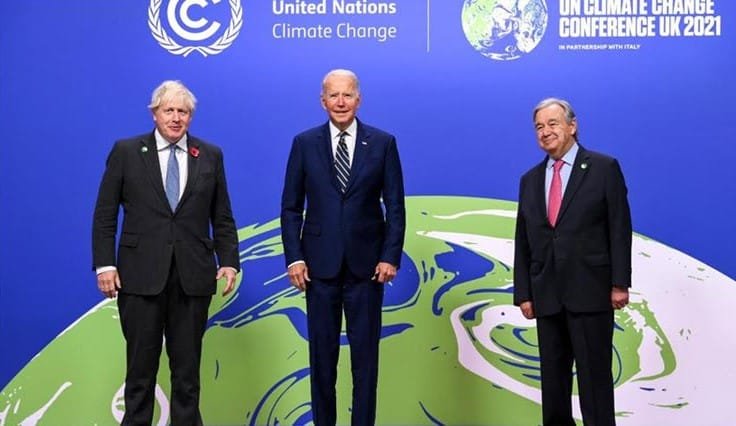At COP26, UK Prime Minister Boris Johnson announced The Glasgow Breakthrough – a plan to deliver clean technology across the globe. The goal is to make clean tech affordable and accessible by 2030 through government and company partnerships. Over 40 world leaders have joined in, representing 70% of the world’s economy.
“By making clean technology the most affordable, accessible, and attractive choice, the default go-to in what are currently the most polluting sectors, we can cut emissions right around the world,” said Johnson.
The first five goals to reach by 2030 could create 20 million new jobs and add $16 trillion to the global economy. They include:
- Renewable power to communities across the globe.
- Improved food systems through climate-smart agriculture.
- Creating clean technologies across aviation, aluminum, chemicals, concrete, direct air capture, shipping, steel, and trucking.
- Support for clean energy transitions.
Funds to lower the cost of clean technology, maximize green hydrogen and direct capture markets, and increase sustainable aviation fuels.
Other areas of focus are zero-emission vehicles, near-zero steel, and renewable and low-carbon hydrogen.
According to Gonzalo Munoz and Nigel Topping – UN High-Level Climate Champions, “This is what the future of COP is all about – catalyzing an innovative ambition loop between political leadership and the dynamism of the private sector to drive towards a resilient, prosperous zero-carbon future.”
It isn’t surprising that world leaders and companies are joining forces. Their desire to lower emissions is the main reason behind the carbon credit industry boom. The carbon credit industry was valued at $300 million in 2018. It is now on track to reach $100 billion by 2030.
These partnerships are what is needed to reduce carbon emissions. And, with the world at ‘Code-Red’ levels, it is important that leaders act quickly.
Climate change impacts every one of us. But, as governments and private industry join to offset emissions, create new technologies, and increase regulation, net-zero goals feel within reach.
Johnson went on to say, ““The Glasgow Breakthroughs will turbocharge this forward so that by 2030 clean technologies can be enjoyed everywhere, not only reducing emissions but also creating more jobs and greater prosperity.”
If successful, The Glasgow Breakthrough has the potential to improve the environment and spark economic growth, globally – benefiting all.

